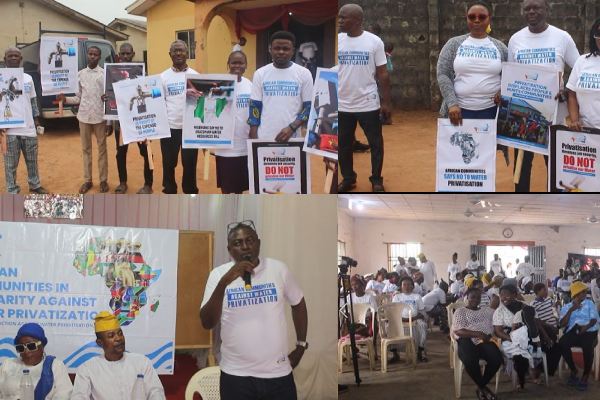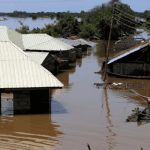Some communities in Lagos are calling on the state government to halt water privatisation plans saying it will have severe consequences on their lives and livelihoods.
This comes just as a non governmental organization, Corporate Accountability and public participation Africa also urged state authorities to increase budgetary allocation to the water sector, and invest in the water infrastructure necessary to provide universal water access.
Water is a basic human right, but many lack access to this necessity of life.
[wonderplugin_video iframe=”https://youtu.be/cfYVljbrJus” lightbox=0 lightboxsize=1 lightboxwidth=960 lightboxheight=540 autoopen=0 autoopendelay=0 autoclose=0 lightboxtitle=”” lightboxgroup=”” lightboxshownavigation=0 showimage=”” lightboxoptions=”” videowidth=600 videoheight=400 keepaspectratio=1 autoplay=0 loop=0 videocss=”position:relative;display:block;background-color:#000;overflow:hidden;max-width:100%;margin:0 auto;” playbutton=”https://www.tvcnews.tv/wp-content/plugins/wonderplugin-video-embed/engine/playvideo-64-64-0.png”]
In Lagos, less than 40% have access to water, and the challenges of water supply include limited distribution network, inadequate power supply and obsolete equipment. However, there are concerns about the privatisation of the water sector, with civil societies alleging that some corporate entities are strategising to take over Africa’s water at expense of vulnerable communities. They want the government to reject this agenda.
Speaking to newsmen, Mr Akinbode Oluwafemi, Corporate Accountability Participation and Project Africa stated that privatisation is not a solution.
“We are suggesting to the government that, while some community members were unhappy with the water privatization plans, they made some demands on the state authorities. There’s nothing wrong with it, but the reality is that the community needs to survive.”
In the meantime, other African governments already involved in privatisation, were asked to return privatized water systems to localities for affordable and equitable management.














